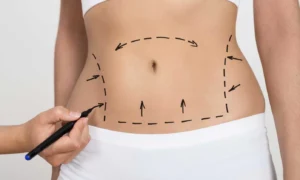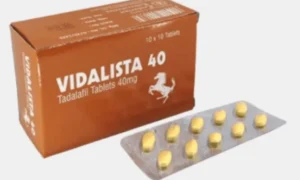Tummy Tuck Diet for Flatter Tummy
Many individuals consider a tummy tuck to achieve a flatter stomach by removing extra skin and tightening abdominal muscles. However, the success of a tummy tuck procedure is not solely determined by the surgery itself. Equally vital is the role of diet in this journey.
Your dietary choices serve a dual purpose: they aid in the body’s healing process post-surgery, promoting optimal recovery and reducing complications. But it also sets the stage for long-term weight maintenance, ensuring you enjoy your new shape for years to come. Let’s explore the significant connection between your tummy tuck diet and a smooth, successful recovery.
We’ll delve into the essential nutrients your body craves post-surgery, explore foods to prioritize and avoid and provide you with valuable tips on how to navigate the pre- and post-tummy tuck dietary landscape. Additionally, we’ll discuss how establishing healthy eating habits becomes the foundation for lasting weight management, allowing you to maintain your sculpted physique.
Tummy Tuck: What You Need to Know
A tummy tuck, known as abdominoplasty, is a surgery to make the belly look better. The tummy tuck surgery involves removing extra skin and fat and tightening the abdominal muscle. People often get it after losing a lot of weight, having a baby, or getting older, when their belly skin gets loose and their muscles get weak.
What is the Importance of Diet?
A well-balanced diet is crucial for the success of a tummy tuck procedure. Proper nutrition supports the body’s healing process post-surgery by providing essential vitamins, minerals, and proteins necessary for tissue repair. Adequate protein intake, in particular, is vital for wound healing, helping incisions to heal appropriately and minimizing scarring.
Moreover, a diet abundant in nutrients can lower the likelihood of complications during and after surgery by supporting the immune system and minimizing inflammation. Consuming foods packed with antioxidants and anti-inflammatory compounds can additionally assist in reducing post-operative swelling and discomfort. Beyond the immediate recovery period, maintaining healthy eating habits can also help sustain the results of the tummy tuck by preventing weight gain and abdominal distension.
Tummy Tuck Diet Approaches
Diet Before Surgery
Before undergoing a tummy tuck, it’s advisable to avoid certain foods that may elevate the risk of complications or interfere with the normal healing process. Here are some foods to avoid:
- High Sodium Foods
Foods rich in sodium can lead to fluid retention and swelling, which may worsen post-operative swelling. Avoid processed foods, canned soups, fast food, and salty snacks.
- High Sugar Foods
Foods rich in sugar can contribute to inflammation and impair the immune system, potentially delaying healing. Limit your intake of sugary beverages, desserts, and processed snacks.
- Alcohol
Alcohol can interfere with anesthesia and medications, increase the risk of bleeding, and impair the body’s ability to heal. It’s best to avoid alcohol for at least a week before surgery.
- High-Fat Foods
Post-surgery, high-fat foods might be challenging to digest and cause gastrointestinal discomfort. Try to avoid fried items, fatty cuts of meat, and heavy sauces or dressings.
- Carbonated Beverages
They can cause bloating and discomfort, which may be exacerbated after surgery. Try to stick to plain water or herbal tea instead.
- Caffeine
While a moderate amount of caffeine intake is generally acceptable, excessive caffeine can increase heart rate and blood pressure, potentially affecting the surgical outcome. Limit coffee, tea, and energy drinks in the days before surgery.
- Spicy Foods
Spicy foods can irritate the stomach and digestive system, leading to discomfort and potentially increasing the risk of post-operative nausea. It’s best to avoid spicy foods before surgery.
Diet After Surgery
After tummy tuck surgery, nourishing your body with a balanced and nutrient-rich tummy tuck diet can significantly aid in your recovery journey. Here’s a breakdown of recommended foods that can support your healing process:
- Protein-rich foods
Protein is the body’s building block. It repairs tissues and plays a vital role in post-operative healing. Including ample protein in your diet can promote wound healing, muscle repair, and overall recovery. Try to opt for lean sources of protein like chicken, fish, tofu, beans, and legumes. Incorporating protein-rich snacks like Greek yogurt, nuts, and cheese can help meet your daily protein requirements and support optimal healing following a tummy tuck.
- Fruits and vegetables
Fill your plate with colourful vegetables and fruits to ensure you’re receiving an abundance of essential vitamins and minerals. Antioxidant-rich options like berries and dark leafy greens can help reduce inflammation and bolster your immune system during recovery.
- Whole grains
It’s common for patients to experience constipation after a tummy tuck due to changes in diet, pain medications, and reduced physical activity. Including fibre-rich foods in your diet can relieve constipation and promote digestive health. Moreover, opt for whole grains such as brown rice, quinoa, and whole-wheat bread to provide your body with essential fibre.
- Healthy fats
Incorporate healthy fats like nuts, seeds, avocados, and olive oil into your diet. These fats promote wound healing, reduce inflammation, and support overall health as you recuperate from surgery.
- Anti-Inflammatory Foods
It’s common to experience pain, swelling, and inflammation after a tummy tuck. Some foods can ease these symptoms and aid healing. However, foods rich in omega-3 fatty acids, such as salmon, flaxseeds, and walnuts, can reduce inflammation. Additionally, herbs and spices such as ginger, turmeric, and garlic have natural anti-inflammatory properties and can be added to meals for additional relief during recovery.
- Hydration
Staying well-hydrated is crucial for your health, particularly after a tummy tuck. Drinking enough water helps your body maintain hydration, supports cellular function, and removes toxins. Try to have at least 8 glasses of water daily, and include hydrating options like herbal tea and coconut water. Moreover, limit your intake of caffeinated and sugary drinks, as they can dehydrate you and slow down healing.
- Supplements
Vitamins and minerals are essential nutrients that support various bodily functions, including immune function and tissue repair. Ensuring adequate intake of vitamins C, A & E, as well as selenium and zinc, can help boost immunity and facilitate wound healing. Moreover, foods rich in these nutrients include citrus fruits, dark leafy greens, nuts, seeds, and whole grains. Additionally, incorporating supplements as recommended by your healthcare provider can further support your body’s healing process during tummy tuck recovery.
Adapting Your Diet to Your Body’s Needs
Every individual’s body responds differently to surgery, so it’s important to listen to the body’s signals and adjust your tummy tuck diet accordingly. If certain foods cause discomfort or digestive issues, consider eliminating them temporarily from your diet. Focus more on eating small, frequent meals that are nutrient-dense and easy to digest. Moreover, consulting with a nutritionist can provide personalized guidance on dietary choices that support your tummy tuck recovery and overall health.
Conclusion
Incorporating specific dietary choices can significantly impact your tummy tuck recovery by supporting healing, reducing inflammation, and promoting overall well-being. By adopting a well-balanced diet rich in protein, vitamins, minerals, fibre, and hydration—critical elements of a tummy tuck diet—you can optimize your body’s healing process and achieve optimal results from your abdominoplasty procedure. Remember to consult with your doctor or a nutrition professional for personalized dietary guidance tailored to your individual needs and recovery goals. With care and proper nutrition, you can enjoy a smoother and more comfortable recovery journey following a tummy tuck surgery.













